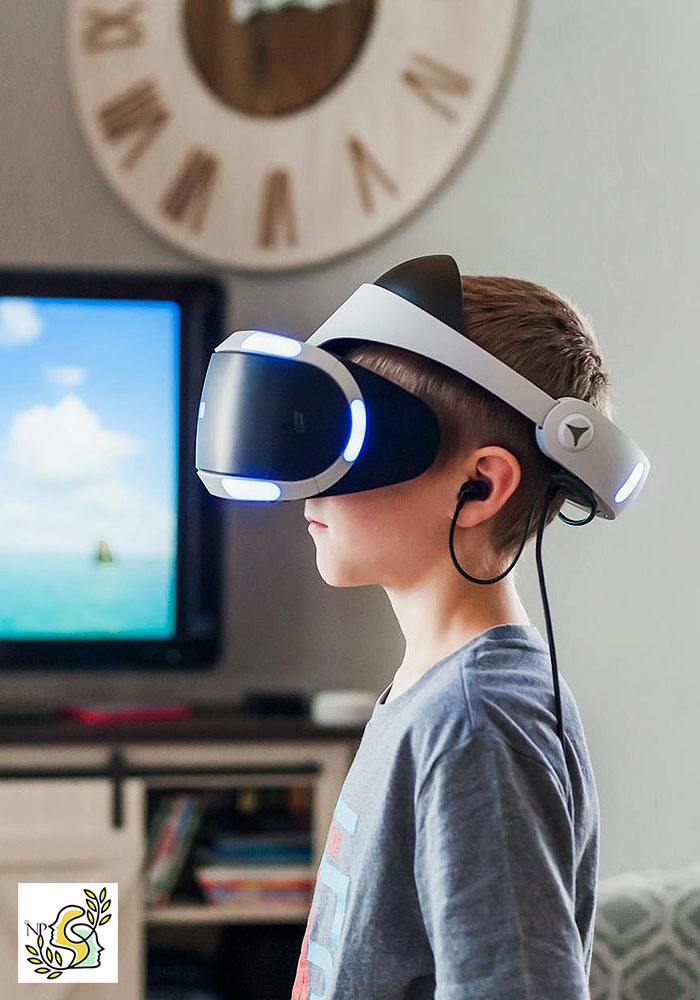Introduction: The rapid advancement of technology has led to the integration of video games into the daily lives of millions, serving not only as a source of entertainment but also as a medium for learning and social interaction. However, the widespread adoption of video games has raised concerns regarding their potential effects on brain health. Research on the effects of computer games on the brain has revealed both positive and negative impacts on cognitive development and neural functioning.
This paper examines the complex relationship between video games and brain health, focusing on both positive and negative outcomes. By reviewing recent studies on the effects of video gaming on cognitive functions, emotional regulation, and mental well-being, this analysis aims to provide a balanced perspective on the influence of video games. Additionally, it seeks to address misconceptions, offering readers a more nuanced understanding of the conditions under which video games may contribute to or detract from brain development.
Table of Contents
How do video games affect the brain?

Research on video games’ effects on the brain has shown both positive and negative impacts, depending on factors such as gameplay duration, content, and individual differences. Numerous studies have demonstrated that video gaming can influence various regions of the brain. For example, playing certain video games has been shown to increase both the volume and activity within specific neural areas. However, some studies indicate that video gaming can also lead to decreased activity in certain regions, such as the frontal lobe. One possible explanation is that initial exposure to a video game may activate regions associated with gameplay, but as the player’s skill improves and gameplay becomes more automatic, the cognitive demand decreases, leading to reduced activity in these areas. Consequently, depending on the duration of training and the timing of assessments, video gaming can be associated with either increased or decreased brain activity.
How video games affect the brain negatively?
Numerous studies have shown that excessive engagement in computer gaming can result in both physical harm and heightened levels of anxiety and depression among players. Research suggests that video games affect the brain by influencing neural pathways associated with cognitive functions such as attention, memory, and problem-solving. Research indicates that many adolescents with a gaming addiction experience elevated heart rates and blood pressure, likely due to high levels of excitement and stress associated with prolonged gaming.
scientists have shown that excessive exposure to video games can lead to negative effects of video games on the brain, including impairments in attention, memory, and executive functioning. The prefrontal cortex, a brain region critical for decision-making, judgment, and self-regulation, does not reach full maturity until approximately age 25. This developmental stage can limit young gamers’ ability to balance immediate rewards, such as extended gaming sessions, against long-term objectives, like preparing for an upcoming exam. Consequently, some young gamers may disregard essential needs like nutrition, sleep, physical activity, and hygiene in favor of continued gaming.
Studies specifically examining violent games suggest they may reduce activity in certain areas of the developing brain. One study found that adolescent male gamers who played violent video games extensively over a two-week period exhibited decreased activity in brain regions essential for behavior control, relative to adolescents who abstained from gaming. Another study observed that even brief exposure (30 minutes) to violent video games led to a significant reduction in prefrontal cortex activity compared to those who played non-violent games.
Please watch: How Video Games Rewire Your Brain w/ Andrew Huberman.
Do video games rot your brain?
Many studies have examined how video games affect the brain, showing both beneficial and adverse effects on cognitive abilities and neural development. Extensive research has highlighted how gaming influences cognitive processes and brain growth. Over time, blood flow may shift toward the brain’s limbic system, which is responsible for emotional and behavioral responses, potentially leading to “brain fog”—sometimes referred to as becoming a “game zombie.” Additionally, gaming can stimulate cortisol (the stress hormone) release in reaction to perceived threats. Notably, video games themselves are neither inherently positive nor negative for mental health; their impact largely depends on how they are used. Unsurprisingly, excessive gaming has been linked in some studies to sleep disturbances, depression, and anxiety. Research indicates it can take up to 90 days for brain chemistry to return to regular dopamine sensitivity, during which individuals may experience a range of symptoms, such as gaming cravings or compulsions, withdrawal effects, mood swings, and irritability.
How does violent video games affect the brain?
video games impact on the brain has been a subject of extensive research, with studies examining how different types of games can influence cognitive function, neural activity, and behavior. Exposure to violent video games has been linked to heightened aggression, bullying, and physical confrontations. The simulation of violent actions, including gunfire and hand-to-hand combat, may contribute to increased aggressive tendencies in real life. Studies suggest that just 10–20 minutes of violent gameplay can activate brain regions related to arousal, anxiety, and emotional reactivity, while concurrently decreasing activity in the frontal lobes, areas crucial for emotion regulation and executive control.
According to Bandura’s (1978) social learning theory of aggression, brief exposure to violent games—whether as a participant or an observer—can lead to an increase in aggressive thoughts and behaviors, as individuals may replicate the aggressive behaviors modeled in the game. However, some research indicates that violent video games can also have a paradoxical impact, promoting prosocial behaviors such as kindness and civic engagement. This may be due to feelings of guilt that arise post-gameplay, which can foster increased prosocial behavior.
How video games affect the brain positively?
Research has shown that video games and brain changes are closely linked, with evidence suggesting that certain types of games can influence neural plasticity, cognitive function, and brain structure. is video game good for your brain? Recent studies suggest that video games can be healthy for the brain, as they may improve cognitive functions such as memory, attention, and problem-solving skills. Studies indicate that individuals who play video games exhibit greater efficiency in brain regions associated with attention, enabling them to maintain focus on complex tasks more effectively. Positive effects of video games on the brain include:
- Video games may improve attention skills.
- Video games have the potential to enhance cognitive flexibility and intelligence.
- Video games can contribute to memory improvement.
- Video games may support learning processes.
- Video games have been shown to strengthen problem-solving abilities.
- Video games may foster creativity and innovative thinking.
Do computer games develop the brain?
Research has shown that video games and the brain are intricately connected, with certain games potentially enhancing cognitive functions such as memory, attention, and problem-solving skills. Studies indicates that video game engagement is associated with enhancements in various cognitive functions. These improvements include sensory processing abilities—such as visual and auditory information recognition—spatial awareness (e.g., recalling object locations and navigating environments), attention control, the capacity to filter out distractions, multitasking abilities, and working memory. In one study, children who played video games at levels above the average showed a 2.5-point increase in IQ compared to peers.
Research has shown that video games and brain development can be interconnected, with certain types of games enhancing cognitive functions such as problem-solving and spatial awareness. However, Pediatric recommendations for screen time suggest no exposure for children under two years, aside from video calls with family or friends; one hour daily for ages 2–5, ideally co-viewing with a parent or sibling; and up to two hours per day for ages 5–17, excluding homework-related use. Additionally, brain training games, though debated, have shown potential for cognitive enhancement. For example, a study in Scientific Reports demonstrated that targeted brain training improved working memory and attention in healthy older adults.

Are brain-training games beneficial?
Studies suggest that computer games can be good for your brain by enhancing cognitive functions such as problem-solving, memory, and spatial awareness. Video games boost memory by enhancing cognitive functions through increased engagement and stimulation of brain regions involved in memory retention and processing. The study findings suggest that engaging in brain-training games (BTGs) may enhance cognitive functions and help mitigate the effects of aging in adults. Nevertheless, additional research is necessary to assess the long-term benefits of BTG on cognitive performance in older populations. Brain-training games are designed to evaluate memory and cognitive abilities through various tasks and challenges. There is evidence indicating that some of these games can effectively enhance cognitive skills that may decline with age, including decision-making, reaction time, and short-term memory. Engaging in problem-solving tasks is thought to stimulate neural activity, promoting communication among brain cells. However, brain games alone may not be sufficient to improve cognitive functions comprehensively. According to Dr. Langbaum, maintaining cognitive health also requires adequate sleep, regular physical activity, a nutrient-rich diet, and participation in intellectually stimulating activities that are both engaging and challenging.
Brain Gym® (BG), a widely marketed program developed by Brain Gym® International, claims to promote both intellectual and physical development and is used in over 80 countries. Despite the program’s popularity and persuasive claims, there is currently limited empirical evidence to support its effectiveness. Additionally, video gaming has been shown to improve certain cognitive functions, including sensory processing (such as visual and auditory perception) and spatial awareness, which are critical for memory and orientation.
Conclusion

In summary, video games influence the brain in complex ways, with impacts that can be either beneficial or harmful based on factors such as game content, playtime, and individual susceptibility. Positively, video games may improve cognitive skills like spatial navigation, problem-solving, memory, and attention, and can also enhance creativity and teamwork in specific contexts. Games that involve strategic thinking, puzzle-solving, and quick reflexes engage brain regions tied to these abilities, which may translate into better performance in real-life activities.
Conversely, excessive gaming, particularly with highly immersive or violent content, can lead to negative outcomes, including heightened aggression, reduced impulse control, and potential addiction. High levels of gameplay have also been associated with poor sleep, limited social engagement, and decreased academic or work productivity. Therefore, a balanced approach is critical—moderate gaming can be beneficial for brain stimulation, but setting mindful limits is essential to reduce the risk of negative effects.
Frequently Asked Questions
Frequently Asked Questions about video games
How does video games affect the brain?
Research, both cross-sectional and longitudinal, has shown that video gaming is linked to enhanced cognitive abilities, particularly in areas like visual attention, short-term memory, reaction time, and working memory.
Are video games good for your brain?
Engaging in video game play activates deeper regions of the brain associated with developmental processes and critical thinking enhancement. Achieving in-game goals and objectives elicits a sense of accomplishment, which contributes positively to mental well-being.
How violent video games affect the brain negatively?
Exposure to violent video games for as little as 10–20 minutes can elevate neural activity in areas of the brain linked to arousal, anxiety, and emotional response. Concurrently, it diminishes activation in the frontal lobes, which are involved in emotion regulation and executive control functions.
Will video games rot your brain?
Gaming reduces activity in the prefrontal cortex, a critical region in the developing brain.
Are video games bad for your brain?
The impact of video games on mental health is not inherently positive or negative; rather, it is influenced by the manner and extent of their usage. Research indicates that excessive video game use may be associated with sleep disturbances, depression, and anxiety.
Can video games rot your brain?
Previous imaging studies employing both cross-sectional and longitudinal approaches have demonstrated that video gaming influences brain structure, resulting in alterations to grey matter, white matter, and functional connectivity.
Do video games help your brain?
Engaging in video gaming activates deeper regions of the brain, promoting cognitive development and enhancing critical thinking skills. Video games also provide a sense of achievement; players work toward specific goals and objectives, and successfully reaching these targets elicits a sense of satisfaction. This experience positively impacts overall mental well-being.
How video games positively affect the brain?
Research indicates that, in addition to alterations observed within the brain, playing video games enhances specific cognitive functions. These include improved sensory processing—such as visual and auditory information recognition—and spatial awareness, such as the ability to recall object locations and navigate spatial environments effectively.
How computer games affect the brain?
Numerous studies have demonstrated that video game playing can induce structural and functional changes in various brain regions. For instance, engaging in specific video games has been shown to enhance both the volume and activity of small areas across multiple regions of the brain.
Are computer games good for our brains?
Videogames have been shown to enhance various cognitive abilities, including concentration, creativity, memory, language skills, and teamwork. Additionally, they facilitate the learning of educational material and support the development of cognitive functions.
Reference:
https://pubmed.ncbi.nlm.nih.gov/22095065
https://pubmed.ncbi.nlm.nih.gov/32164847
https://pubmed.ncbi.nlm.nih.gov/33600753
https://pubmed.ncbi.nlm.nih.gov/29172564
https://pubmed.ncbi.nlm.nih.gov/29093038
https://pubmed.ncbi.nlm.nih.gov/27348376
https://pubmed.ncbi.nlm.nih.gov/29093033
https://pubmed.ncbi.nlm.nih.gov/27906522




